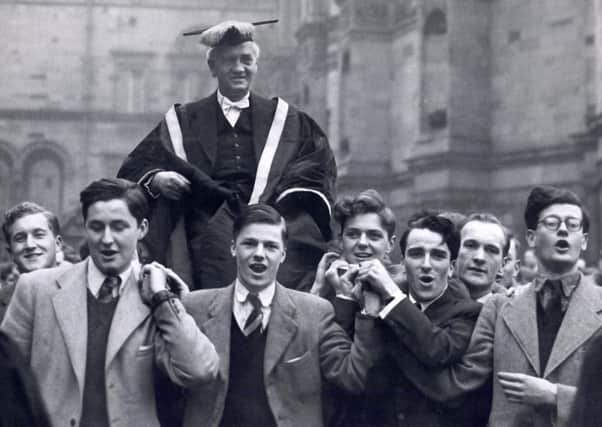OTD 1881: Birth of penicillin pioneer Alexander Fleming


His life changing find was made after returning from holiday, on September 9 1928, to discover Penicillium Notatum mould growing in a petri dish and destroying all the bacteria in its path.
He moved to isolate the antibiotic agent - and healthcare was changed forever.
Advertisement
Hide AdGrowing up on a hill farm near Darvel in Ayrshire, much of Fleming’s young life was spent observing and recording the natural world around him.
By the age of 14, he moved to London to complete his education with a legacy from an uncle allowing him to go on and study medicine. He choose to do at St Mary’s Medical School in Paddington, given that their water polo team was the best around.
Fleming hoped to qualify as a surgeon but at the turn of the century he accepted a post in the new field of bacteriology.
During WW1, Fleming worked in a military hospital lab set up in a casino in Boulogne.
Here, he became an expert on the bacteriology of wound infection. He also found that the enzyme lysozyme, which is present in tears, bodily fluids and some plants, had a mild antiseptic effect with his research significantly advancing developments in sterilising surface wounds.
Following his petri dish discovery in 1928, Fleming joined chemists Howard Florey and Ernst Boris Chain to accelerate his research.
Advertisement
Hide AdThey synthesised penicillin at the William Dunn School of Pathology at Oxford and passed clinical trials between 1939 and 1941.
During World War Two, they had been able to assist the military effort by producing restricted batches of the medicine.
Advertisement
Hide AdIn 1945, the three accepted the Nobel Prize in Physiology or Medicine for the discovery and development of rudimentary antibiotics.
Fleming’s ashes are buried in St Paul’s behind an bespoke marble plaque sourced from the same quarry as Athens’ Parthenon.
Etched into the plaque, a thistle is carved alongside the Fleur-de-lys of St Mary’s Hospital London, in honour of his Scottish roots and his commitment to his employer.
